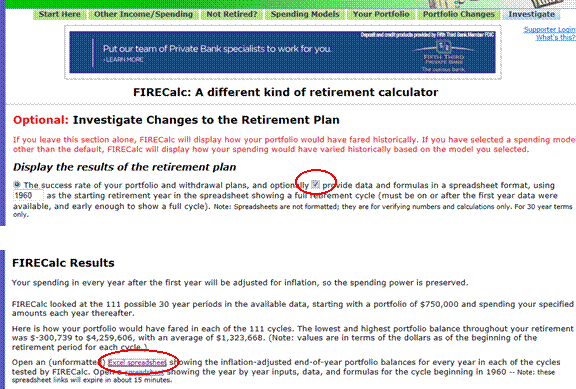Haha, what I meant to convey was that net worth is meaningless unless you can convert it to cash flow. I look at as determining, first of all, what part of your net worth can actually be transformed into income, and second, how much transformable net worth you need to last your life time.
For example, right now we have 2 homes and 1 piece of vacant commercial property. They don't generate income. I don't include them in any of the FireCalc or spreadsheets I look at. Although, I confess, I do sometimes put what I hope is a conservative number for a sale of the commercial property, but I don't include it in projecting cash flow. By the same token, I suspect that one day we will sell one or both homes, but I don't include that scenario either. I'm just trying to figure out how much we need in other assets that are transformable into income.
Do people here include their homes in the net worth number when calculating a SWR? I don't.

